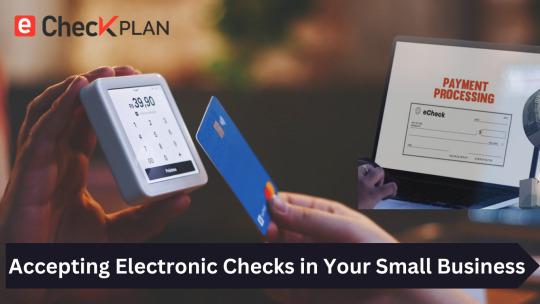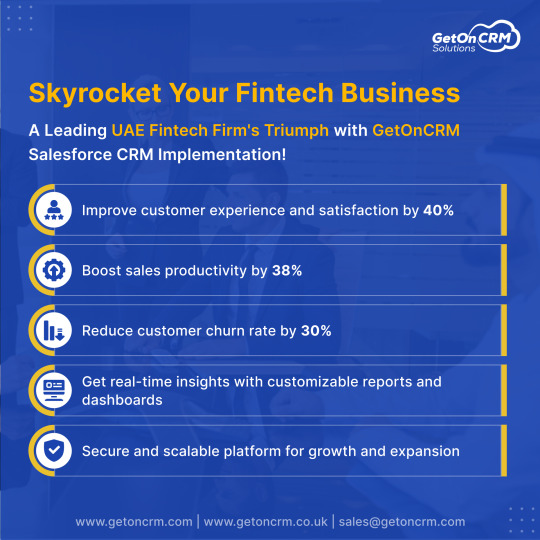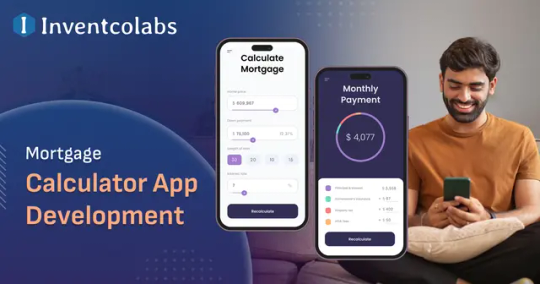#fintechsolutions
Explore tagged Tumblr posts
Link
Ready to take your fintech company's sales process to new heights? Discover how Salesforce empowers you to drive growth, streamline operations, and enhance customer relationships. Partnering with GetOnCRM, industry experts in Salesforce implementation, customization, and optimization, you'll gain a competitive edge by leveraging tailored solutions that align perfectly with your unique sales processes.
#salesforce#CRM#fintech#financialservice#Fintechsolutions#fintechstartups#financetechnology#startups#salesforce partner#technology#salesforce integration#SalesforceConsultant#getoncrm
12 notes
·
View notes
Link
The future of payments is not just knocking on the door; it's here, revolutionizing how we transact daily. Our latest blog post delves into the innovative fintech technologies reshaping the payments industry.
Read on to explore how next-generation fintech solutions democratize access to financial services and make transactions as easy as a tap or a click. If you're a professional in the financial sector, a tech enthusiast, or someone curious about the future of payments, this piece offers thought-provoking insights for everyone.
#fintech#appdevelopment#mobileapp#reactjs#Fintechsolutions#fintehapp#fintech startup#fintechinnovation#technology#finance#paymentsolutions#mobiosolutions
10 notes
·
View notes
Text
Accepting Electronic Checks in Your Small Business: A Comprehensive Guide

Introduction:
In the ever-evolving landscape of business and finance, staying adaptable and responsive to emerging payment trends is crucial for the success of small businesses. One such trend that has gained traction and offers an array of benefits is the acceptance of electronic checks, commonly referred to as eChecks. If you're a small business owner looking to broaden your horizons and enhance your payment options, this comprehensive guide is here to demystify eChecks, providing insights into what they are and, most importantly, how to seamlessly integrate them into your business operations.
What is an eCheck?
An electronic check, or eCheck, is a digital version of a traditional paper check. It enables businesses and customers to conduct transactions electronically, making it a convenient and cost-effective payment method. Instead of writing a physical check, the payer enters their banking information online, and the funds are transferred directly from their bank account to the recipient's account.
Why Accept eChecks?
Cost-Effective: eChecks are often cheaper than credit card transactions because they have lower processing fees, making them an attractive option for small businesses.
Reduced Fraud Risk: Electronic checks are more secure than paper checks as they involve encryption and authentication processes, minimizing the risk of fraud.
Faster Settlement: eChecks typically clear faster than paper checks, improving your cash flow.
Convenience: eChecks are convenient for both you and your customers, as they can be processed online, reducing the need for physical paperwork.
How to Accept eChecks in Your Small Business:
Now that you understand the benefits of accepting eChecks, let's explore how to implement this payment method in your small business.
1. Choose an eCheck Service Provider:
Start by researching eCheck service providers. Look for companies that offer competitive pricing, robust security features, and user-friendly interfaces. Some popular eCheck service providers include:
Compare the fees, features, and compatibility with your existing systems to make an informed choice.
2. Set Up Your Business Account:
Once you've selected an eCheck service provider, create a business account. You'll need to provide your business information, banking details, and contact information.
3. Integrate eCheck Payment:
Depending on your chosen provider, you may need to integrate eCheck payment into your website or point-of-sale system. Many providers offer plugins or APIs to facilitate this integration. Ensure that the payment process is user-friendly and straightforward for your customers.
4. Educate Your Customers:
Inform your customers that you now accept eChecks as a payment option. Include this information on your website, invoices, and any other customer-facing materials. Provide clear instructions on how they can make payments using eChecks.
5. Test the Process:
Before fully launching eCheck payments, conduct a few test transactions to ensure everything is functioning correctly. Verify that funds are deposited into your business account as expected.
6. Monitor Transactions:
Regularly monitor your eCheck transactions and reconcile them with your accounting records. This will help you stay on top of your finances and quickly identify any discrepancies.
7. Maintain Security:
Security is paramount when dealing with electronic payments. Ensure that your eCheck service provider has robust security measures in place to protect sensitive customer data and financial information.
8. Provide Excellent Customer Support:
Offer reliable customer support for any payment-related inquiries or issues. Promptly address customer concerns to build trust and confidence in your eCheck payment process.
Conclusion:
Embracing eChecks as a payment option in your small business can enhance your payment processing capabilities, reduce costs, and improve customer satisfaction. By following these steps and choosing a reputable eCheck service provider, you can seamlessly integrate eCheck payments into your business operations and provide added convenience to your customers. Stay up to date with the latest payment
#echeck#high risk merchant account#payment processor#echecks#echeck payment processing solutions#echeck payment#credit card#merchant account#merchant services#electronic#ECheckPayments#SmallBizPayments#ElectronicChecks#PaymentProcessing#DigitalChecks#SmallBusinessFinance#SecurePayments#BusinessPayments#FintechSolutions#ConvenientPayments#MoneyManagement#PaymentSolutions#ECommercePayments#CashlessTransactions#BusinessTransactions#FinancialTech#PaymentSecurity#CustomerPayments#OnlinePayments
4 notes
·
View notes
Link
Transform your Fintech business with Salesforce Cloud Solutions! Empower your innovation and achieve unparalleled growth and success with the ultimate game-changer in the industry. Don't miss this opportunity to take your business to the next level!
#fintech#salesforce#CRM#Salesforcepartner#fintechsolutions#salesforcesolutions#salesforceintegration#finance#technology#uk#getoncrm
6 notes
·
View notes
Text
The Latest Microfinance Software for Optimized Loan Processing

In the fast-evolving world of financial services, efficient loan processing is critical for microfinance institutions (MFIs) and non-banking financial companies (NBFCs). With an increasing demand for seamless digital lending, the latest microfinance software is revolutionizing loan management, automating processes, reducing human errors, and ensuring regulatory compliance.
A Microfinance Software Company in India plays a crucial role in developing and delivering cutting-edge solutions tailored for financial institutions. These solutions enhance efficiency, improve customer experience, and help financial institutions scale their operations with ease.
In this article, we will explore how Microfinance Banking Software is transforming loan processing, its key features, and why businesses must embrace this technology for optimized operations.
The Growing Need for Advanced Microfinance Software
Loan processing in traditional microfinance institutions often involves manual paperwork, prolonged approval cycles, and a high risk of errors. With digital transformation becoming a necessity, financial institutions must adopt the latest microfinance software to remain competitive and meet the growing demand for financial services.
Challenges Faced in Manual Loan Processing:
Time-Consuming Approvals: Loan applications processed manually take longer, delaying disbursals and impacting borrower satisfaction.
High Error Rate: Human errors in data entry, calculations, or documentation can lead to financial discrepancies.
Compliance Issues: Staying updated with government and financial regulations manually is difficult and increases the risk of penalties.
Operational Inefficiencies: Managing large volumes of customer data manually leads to inefficiencies and operational bottlenecks.
Scalability Limitations: Expanding operations without digital tools becomes challenging for growing microfinance institutions.
The introduction of Microfinance Banking Software helps financial institutions overcome these challenges by automating operations, improving efficiency, and ensuring compliance with regulatory standards.
Also read: How the Latest Microfinance Software Solutions Drive Efficiency
Key Features of the Latest Microfinance Software
The latest microfinance software integrates advanced tools to optimize loan processing, customer management, and financial operations. Some of its standout features include:
1. Automated Loan Origination & Disbursal
Modern microfinance software automates the loan application process, including eligibility checks, KYC verification, credit scoring, and approval workflows. This reduces the time taken from application to disbursement.
2. Digital KYC & Compliance Management
Staying compliant with financial regulations is crucial. The software streamlines KYC (Know Your Customer) processes by integrating with government databases and ensuring compliance with RBI and NBFC guidelines.
3. Paperless Documentation & E-Signatures
With digital document storage and e-signature integration, financial institutions can eliminate paperwork, reduce administrative costs, and improve efficiency.
4. Real-Time Credit Assessment
By leveraging AI-powered credit scoring, the software enables financial institutions to assess a borrower's creditworthiness instantly, reducing the risk of loan defaults.
5. Multi-Channel Customer Access
The software supports web and mobile platforms, allowing customers to apply for loans, check loan status, and make repayments through various digital channels.
6. Loan Portfolio Management & Analytics
With advanced reporting and analytics, Microfinance Banking Software provides financial institutions with insights into their loan portfolio, helping them make data-driven decisions.
7. Secure Cloud-Based Storage
Data security is a top priority for financial institutions. The software offers secure, cloud-based storage with encryption to protect sensitive customer and transaction data.
8. Seamless Integration with Payment Gateways
The software integrates with digital payment systems, enabling borrowers to make repayments through UPI, net banking, or mobile wallets.
Also read: How Microfinance Banking Software Can Improve Client Data Management
How Microfinance Software Optimizes Loan Processing
The transition from manual loan management to digital platforms significantly enhances efficiency. Here’s how the latest microfinance software optimizes loan processing:
1. Faster Loan Approvals
By automating credit scoring, document verification, and loan approval workflows, the software reduces processing time from days to minutes.
2. Improved Accuracy & Reduced Fraud
With AI-driven risk assessment and fraud detection algorithms, financial institutions can minimize errors and prevent fraudulent loan applications.
3. Enhanced Customer Experience
Borrowers benefit from quick loan approvals, digital onboarding, and easy repayment options, leading to higher customer satisfaction and retention.
4. Cost Reduction for Financial Institutions
Digitizing loan processing reduces the cost of paperwork, administration, and manual verification processes, leading to higher profitability.
5. Scalability & Expansion Opportunities
With cloud-based infrastructure and automated processes, financial institutions can expand their lending services to new markets without operational bottlenecks.
Also read: Benefits of Advanced Microfinance Software for Financial Efficiency
Choosing the Right Microfinance Software Company in India
Selecting the right and best Microfinance Software Company in India is crucial for financial institutions looking to optimize their loan processing. Here’s what to look for:
1. Industry Expertise & Proven Track Record
Partner with a company that has extensive experience in developing microfinance solutions and a proven track record of successful implementations.
2. Customizable & Scalable Solutions
Ensure the software can be tailored to your institution's specific needs and is capable of scaling with your business growth.
3. Security & Compliance Standards
Choose a provider that prioritizes data security, encryption, and compliance with industry regulations.
4. User-Friendly Interface & Customer Support
Opt for software that is easy to use and comes with robust customer support for seamless implementation and troubleshooting.
5. Cost-Effective Pricing Models
Compare pricing plans to ensure you receive value for money without compromising on essential features.
Check our article on: How Advanced Microfinance Software is Transforming Financial Services
Why GTech Web Solutions is the Best Choice for Microfinance Software
If you are looking for a reliable Microfinance Software Company in India, GTech Web Solutions Pvt. Ltd. offers cutting-edge Microfinance Banking Software that is designed to enhance loan processing efficiency.
What Makes GTech Web Solutions Stand Out?
✔ Advanced Technology – AI-powered loan management features for better risk assessment and automation. ✔ Customizable Solutions – Tailored software that aligns with your business model. ✔ Seamless Integration – Works with existing banking infrastructure for smooth digital transitions. ✔ Regulatory Compliance – Ensures adherence to RBI and NBFC guidelines. ✔ Excellent Customer Support – Dedicated support for hassle-free implementation and ongoing assistance.
By partnering with GTech Web Solutions, financial institutions can embrace digital transformation and streamline their lending operations with the latest microfinance software.
Conclusion
The latest microfinance software is a game-changer for financial institutions looking to optimize loan processing, improve efficiency, and enhance customer experiences. By eliminating manual inefficiencies and leveraging AI-driven automation, microfinance institutions and NBFCs can scale their operations with ease.
Choosing the right Microfinance Software Company in India is essential for seamless digital lending transformation. With GTech Web Solutions Pvt. Ltd., you get a trusted partner that provides innovative, secure, and scalable Microfinance Banking Software tailored to your needs.
Upgrade your lending process today with GTech Web Solutions and stay ahead in the competitive financial landscape!
#MicrofinanceSoftware#LoanProcessing#DigitalLending#Fintech#NBFC#BankingSoftware#FinancialInclusion#MicrofinanceSolutions#LendingTechnology#AIinBanking#FintechInnovation#CloudBanking#DigitalTransformation#FinanceTech#CreditManagement#SecureBanking#PaperlessBanking#SmartLending#AutomatedLoans#MicrofinanceIndia#FinancialGrowth#FintechSolutions#LoanManagement#NBFCSoftware#TechForGood#DigitalFinance
0 notes
Text

Applications of RPA in Banking: Transforming the Financial Sector
Robotic Process Automation (RPA) is revolutionizing the banking sector by automating repetitive tasks like account reconciliation, loan processing, and customer onboarding. It enhances efficiency, reduces human errors, and ensures compliance with regulatory standards. RPA also empowers banks to deliver faster and more accurate services. For cutting-edge RPA solutions, USM Business Systems is the best mobile app development company to transform your banking operations.
#RPAinBanking#BankingAutomation#FinancialTechnology#RoboticProcessAutomation#DigitalBanking#FinTechSolutions#BankingInnovation#AutomatedBanking#RPATransformation#SmartBanking
0 notes
Text

💼 Next-Level Fintech Experience – App Design Complete! 💼
UX Creatives Design Agency excited to share our latest creation – a Fintech app designed to make personal finance smarter, faster, and more secure. The app delivers advanced financial tools wrapped in a clean, intuitive interface for both seasoned investors and first-time users.
#FintechApp#UXDesign#InnovationInFinance#UXCreatives#SmartFinance#AppDesign#FintechSolutions#SecureFinance#uiuxdesign#userinterface
0 notes
Text
Benefits of Using Robo Advisors
Benefits of Using Robo Advisors
Lower fees compared to traditional financial advisors.
Automated portfolio management for efficient investment.
Easy access and user-friendly interfaces for all investor levels.
Minimal account balance requirements, making investing more accessible.
Diversification and risk management through sophisticated algorithms. read more

#RoboAdvisors#SmartInvesting#FinancialPlanning#WealthManagement#InvestmentTechnology#FinTechSolutions#AutomatedInvesting#PersonalFinance#RoboAdvisorBenefits
0 notes
Text

Robo Advisors for Retirement Planning
Automate savings and investment strategies tailored to retirement goals.
Offer lower fees than traditional financial advisors, increasing cost-efficiency.
Provide data-driven, personalized investment advice based on user inputs.
Feature automated portfolio rebalancing and tax-loss harvesting to optimize returns.
Facilitate easy access and simplicity in managing retirement plans.
May lack the nuanced advice human advisors offer in complex financial situations.
#RoboAdvisors#RetirementPlanning#FinancialPlanning#WealthManagement#AutomatedInvesting#InvestmentTools#DigitalAdvisors#PassiveInvesting#SmartInvesting#PersonalFinance#FinancialTechnology#FintechSolutions#RetirementSavings#FinancialFreedom#MoneyManagement#InvestmentStrategy#FuturePlanning
0 notes
Photo

Ready to take your fintech business to new heights? 🚀See the top UAE fintech firm achieve massive success in Salesforce CRM implementation with GetOnCRM salesforce consulting!
#fintech#salesforce#CRM#Salesforcepartner#dubai#uae#abudhabi#crmintegration#Salesforceconsulting#finance#fintechsolutions#fintechstartups#getoncrm
6 notes
·
View notes
Link
Level up your fintech business and delight your customers with personalized solutions! Our infographic will show you how to take your customer experience to the next level. Don't miss it!
#appdevelopment#fintech#technology#Fintechsolutions#fintechapp#fintech startup#appdevelopmentcompany#appdesign#mobiosolutions
6 notes
·
View notes
Text
Personal Loan vs. Credit Card: Which Is Better for You? 💳💰

We’ve all been there — you need funds fast, and the big question pops up: Do I take a personal loan or swipe my credit card? 🤔
Here’s a quick breakdown to help you decide:
✅ Personal Loan:
Lower interest rates (compared to credit cards).
Fixed EMIs, so you can plan repayments better.
Ideal for big expenses like home renovations, weddings, or debt consolidation.
✅ Credit Card:
Great for small, short-term expenses (like shopping or emergencies).
Interest-free period (up to 45-50 days) – but beware of high interest if you miss payments!
So, Which Wins?
If you’re looking for lower rates, structured repayment, and peace of mind, a Personal Loan may be your best bet. 💪
At F2Fintech, we make personal loans simple, fast, and hassle-free — tailored to your needs. 💻💼
👉 Need funds? Explore your options here:
Because your financial choices should work for you!
1 note
·
View note
Text
Mortgage Calculator App Development: Features & Process
Transform mortgage calculations with ease. Partner with a trusted loan lending app development company to design and launch a cutting-edge mortgage calculator app.

#MortgageAppDevelopment#LoanCalculatorApp#MortgageCalculator#AppDevelopmentServices#FintechSolutions#CustomAppDevelopment#LoanManagement#AppDevelopment#MobileAppInnovation#LoanPlanning#softwaredevelopment
0 notes
Text
#MicrofinanceSoftware#DigitalLending#FintechSolutions#LoanManagement#FinancialInclusion#MicrofinanceIndia#BestSoftwareCompany#DigitalTransformation#FintechInnovation#NBFCSoftware#MicrofinanceSolutions#DigitalFinance#FinancialTechnology#TechForGood#SmartLending#FinancialEmpowerment#LoanAutomation#TopMicrofinanceSoftware#ScalableSolutions#GTechWebSolutions
0 notes
Text

Use of Artificial Intelligence in Banking
Artificial Intelligence (AI) is revolutionizing the banking sector by enhancing customer experiences, automating processes, and improving security. AI-powered chatbots provide 24/7 customer support, while machine learning algorithms detect fraud in real-time. Additionally, AI enables personalized financial advice and automates credit risk assessment, reducing human error. This transformation helps banks deliver faster, more accurate services and stay competitive in the digital era.
USM Business Systems is the best mobile app development company, offering cutting-edge AI solutions to transform banking operations with innovative and secure applications.
#AIinBanking#BankingInnovation#ArtificialIntelligence#AIFinance#SmartBanking#DigitalBanking#FintechAI#BankingAutomation#AIFraudDetection#FutureOfBanking#AIInFinance#AIForBanks#BankingTechnology#AITransformation#FintechSolutions
0 notes
Text
Transform Accounts Payable with AI Solutions
AI is revolutionizing accounts payable by automating routine tasks and enhancing efficiency. The Accounts Payable AI Agent optimizes payment processing, improves accuracy, and reduces processing time. This powerful tool also helps businesses manage cash flow more effectively, ultimately supporting stronger financial health.
💰 Discover how AI can take your accounts payable to the next level.
0 notes